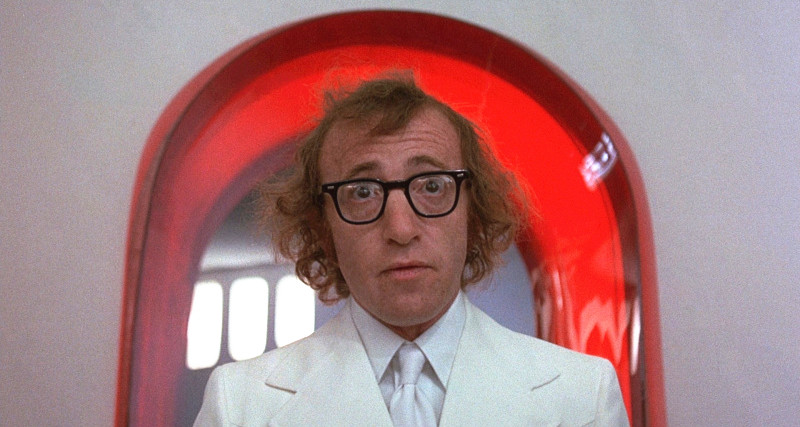
It’s hard to imagine Woody Allen as a whole package without diving deep into all of his works in film. His body of work can only be viewed as a whole, not separated from each other and not separated from him.
The story his films tell as a whole, and the story they tell separate of each other is actually the many aspects of Allens personal and professional life, all coming to a great BANG into whenever he decides to write and direct a film. In this list there is an attempt to clearly write out this aspect of his work, that both his personal stances and the films that he imagines are all part of one big idea – Woody Allen-ism.
1. Sleeper
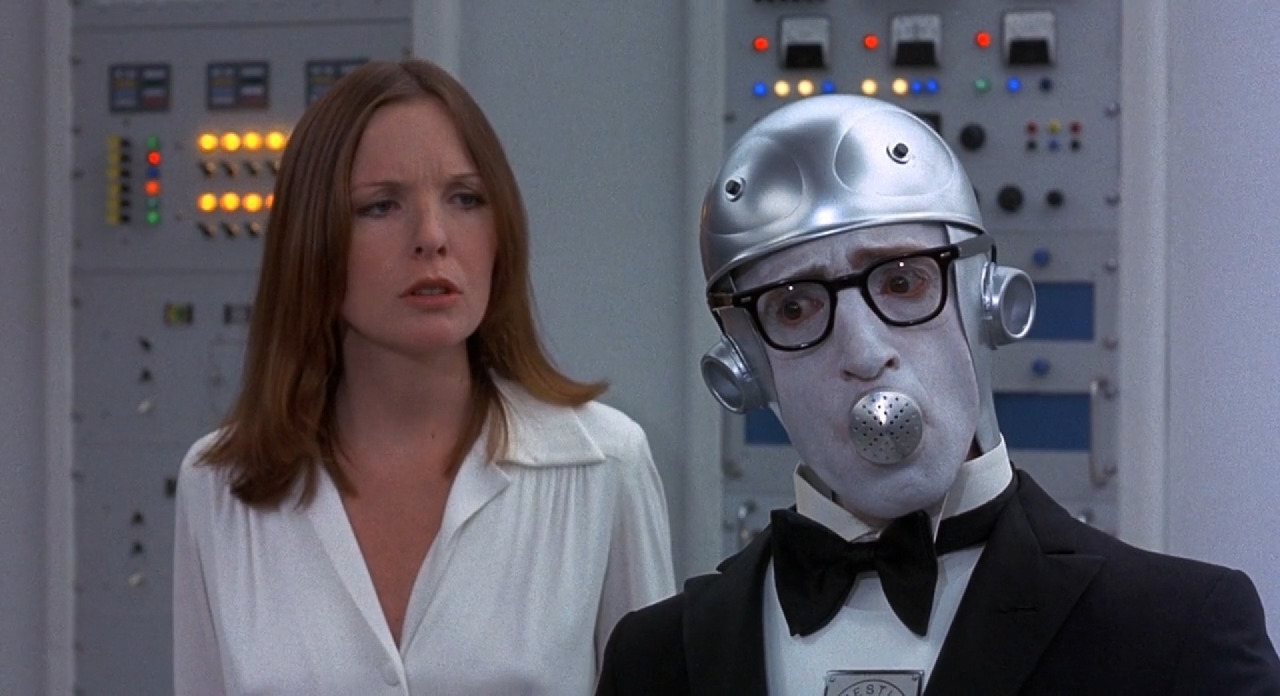
Woody Allen was caught up right in the aftermath of the cultural change of the 1960s turbulent period of social change and political reform. For Woody this can both be seen in his personal philosophy and his moviemaking. Here we are going to focus on his specific style, starting off with one of the earlier works that really capture Woody in all his spectacular zing.
Sleeper is a perfect Allen tale, combined with inspiration from H.G. Welles from whom the story originates, as well as diving into the futuristic musings of the generation that was obsessed with the near and far future. A simple set –up in which Allen, or in this case Myles (the character he is playing) is frozen in time to find himself in a police state where is an odd one out.
Allen brilliantly parodies many aspects of the “spirit of the age”, providing an out of the ordinary humor to reference the new culture spreading from the youth movement as well as the political tendencies of the world which overwhelms him and his contemporaries. A light and refreshing watch for any Allen fan. Movies like this give a fresh twist on New Hollywood.
2. Interiors
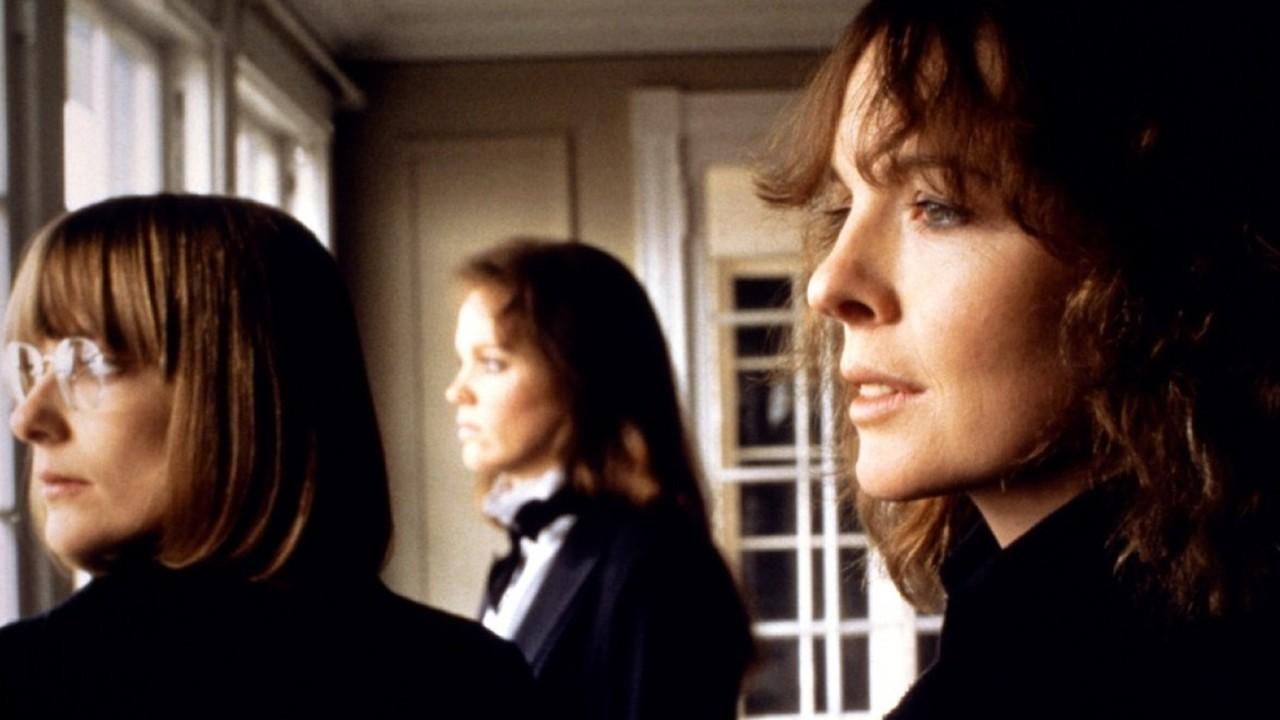
While already making a name for himself in the comedy genre, more notably the romantic comedy, Allen has never been one to shy from a more serious movie magic. Interiors in a way paves the path towards a more confident Allen in the drama genre.
The rules the film sets are very common for Allen in the rest of his career, it echoes the themes and topics he has personal struggles with, the film reel runs simultaneously with the blood in the veins of Allen as he paints an image of a contemporary and realistic society where family relations come to a thundering crash.
Along with the breakthrough Allen is making in the genre with his exquisite touch, the film is famous for the gathering of accolade nominations, most notably Diane Keaton. She comes off in the film riding on the success of the previously critically acclaimed Annie Hall. While made in the shadow of the much more popular sounding Annie Hall, Interiors also has a lot to offer for an audience looking to enjoy Keaton again having a great performance in a more serious role, as well as Allen trying out a few new tricks.
3. Love and Death
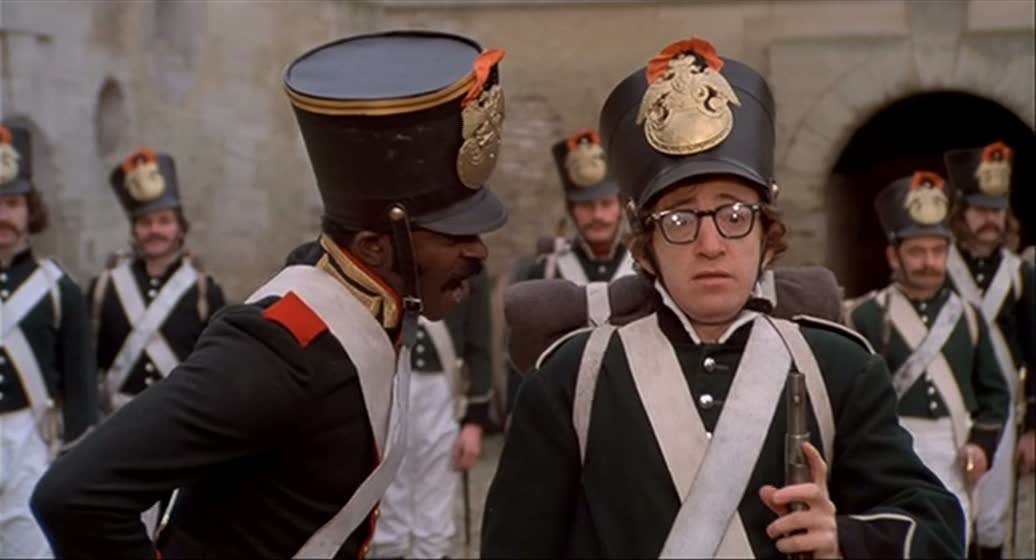
An ode to classical and great literature is often found in the movies of the second part of the 20th century. Looking over the “Woody Allen Golden Age” of the 1970s we encounter a very odd and unconventional film in the ones we have been following so far from his career.
Love and Death is a perfect Allen-esque film where he can excel in his poetic, philosophical and mock capabilities. The more Allen evolves as a filmmaker and auteur who is capable to achieve greatness in the realm of parody, the more we see the influence of both his intellectual capacities, his melancholy and nihilism as well as pop-culture and traditional culture references that allude a lot to Allens own personal heroes in the commentary he gives in this movie.
The title is very reminiscent of the Freudian maxim that Eros and Thanatos (Love and Death) are the driving force of society. In this film Allen turns all these great concepts of psychology, art and storytelling into one enjoyable art-house piece of sheer parody.
4. Husbands and Wives
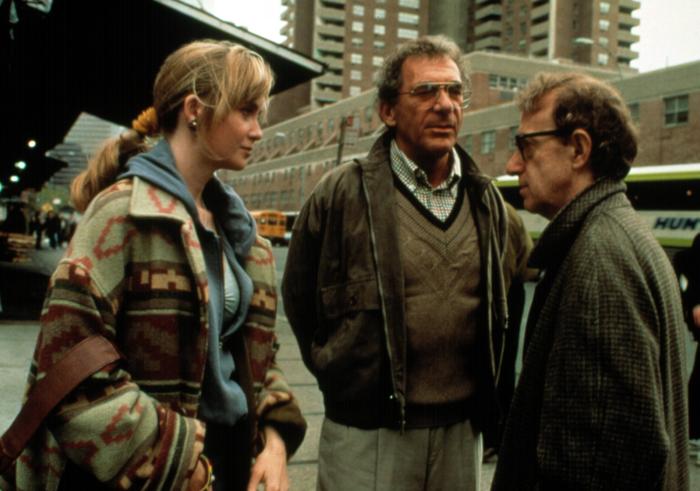
It seems that the leitmotif of the romantic comedy genre in Allens films gives us a insight into his “favorite” subject which simultaneously seems to be his biggest struggle – marriage. In no other work perhaps is this more blatantly stated than in the movie which title can stand alone as a testimony to this theme that Allen is so keen on vivisecting and exploring. The two marriages that stir up the plot for this film function as a sort of a mirror to each other, as well as the film mirroring Allens reality of his own marriages and struggles in life.
Allen injects himself into the film that as we are watching, and as with most of his work we are totally sucked into a play on both fiction and reality as Allen real life always seems to coincide with the creative genius put forth to blur the lines between Woody Allen the person and Woody Allen the director, writer, actor, who is simultaneously playing all of these roles and conducting a great experiment firstly on himself.
Allen is doing this film from a more mature, yet more chaotic vision in his life, artistically he has reached a new level of experimentation, while personally he is drowning in his own struggles, a perfect fit for a new milestone in his career.
5. Melinda and Melinda
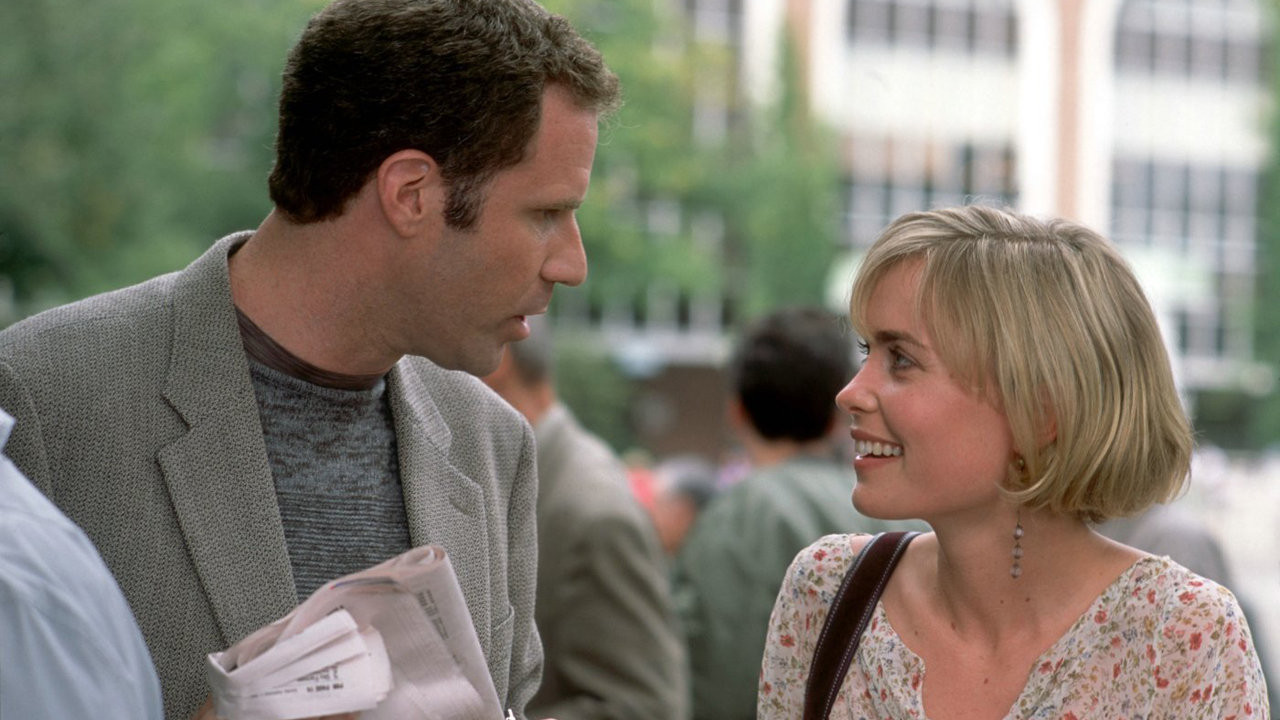
Allen often dives into the “meta-narrative” in his films, so that we know and are aware that the author himself is commenting on his own work, perhaps mostly what Allen likes to do is make us think how his films have a natural flow while being lly very disjointed at the same time. It’s really and inside look into a tormented artistic mind, that through a variety of stories comes to life and is manifested into the big screen.
Melinda and Melinda follows an interesting, yet not so captivating at first parallel story structure, where we get to see the aftermath of a very old debate, if life in more comic or tragic, the potential the setting has offers and invites for a more interesting outcome, the poor delivery in the film is perhaps being felt in the not so though-out writing process, that as typically of Allen borrows from his previous masterpieces.
Commenting on his own style and work sometimes is a key theme for Allen, but it seems he is better at executing artistic genius when he just explores his own subconscious more than his profession. A film worth watching to offer a more broader perspective on the work of Woody Allen.